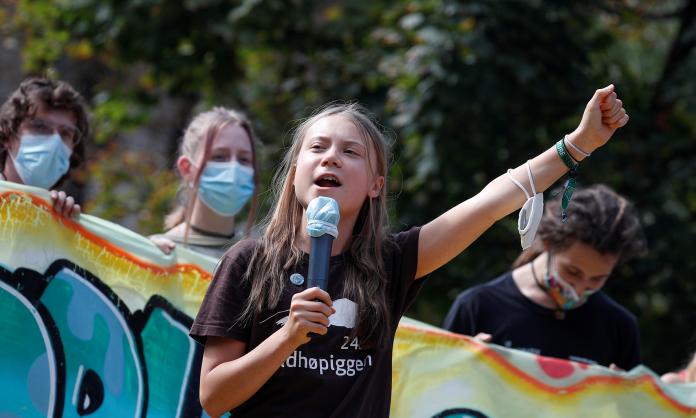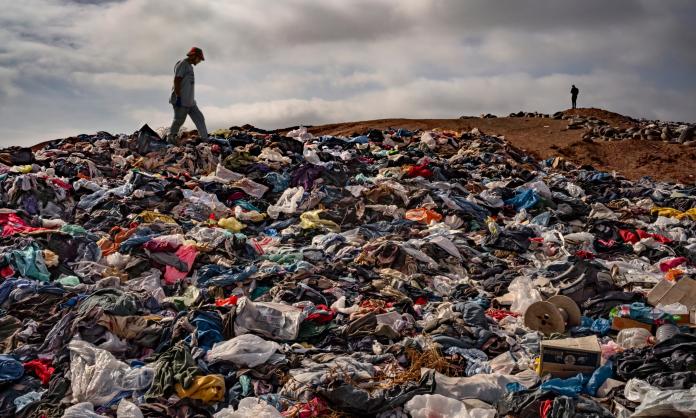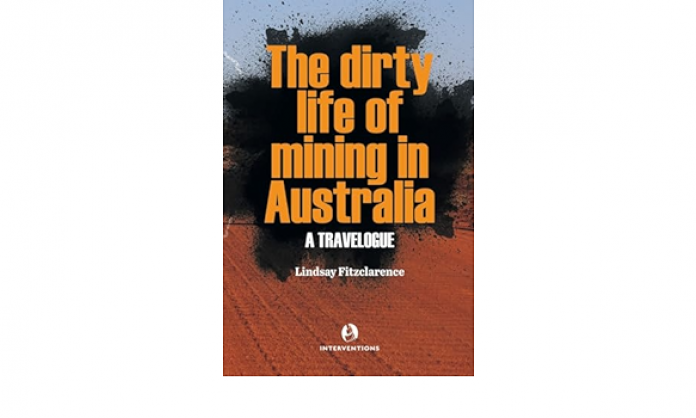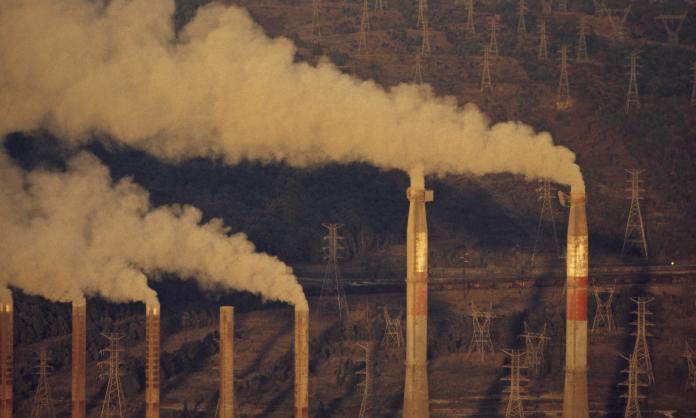To avoid unnecessary hurt feelings, we’ll start with a disclaimer: if you’re a regular reader of Red Flag it’s entirely possible that, in your own way, you may actually be as cool as, or perhaps even cooler than, Greta Thunberg. If you think the single most effective short-term measure to address the climate crisis would be to load all of the world’s billionaires onto a rocket and launch them straight into the sun, then that’s certainly very cool. Even better if you’re involved in the kind of organising work that might one day mean we can turn that pleasant daydream into reality.
Unfortunately though, most people aren’t even nearly that cool. In Australia the uncoolness is particularly acute. Instead of an Australian Greta all we seem to have is a long line of high-achieving goody two-shoes whose desire to actually change society in any radical way appears to weigh little against their personal ambition to join the ranks of the “influencer” class.
“Mum, can we have an Australian Greta please?” “No, we have Australian Greta at home”: People who are so afraid of radical politics they threaten to call the police on other climate activists. People who instead of actually fighting the country’s biggest polluters run campaigns to get a seat on their board. People who can’t work out that, even if a Liberal Party minister seems friendly, you probably shouldn’t meet with them and share joyful happy snaps of the occasion with your supporters as if it will do anything other than provide a little bit of green cover for status-quo.
That’s just some of the supposed leading lights among the School Strike 4 Climate crowd (no doubt, of course, many of the rank and file school strikers are much cooler than this, and would be sickened with embarrassment by the cringe-worthy behaviour of their seemingly completely unaccountable leadership). And most of the rest of the climate movement in Australia is even worse. For decade after decade all the multi-million dollar budgeted heavyweights of the environmental NGO world have done, effectively, is to very politely and respectfully ask for a seat at the table.
Every few months, it seems, we get another (of course impeccably researched and cleverly and attractively designed) report outlining the latest science on the unfolding climate disaster and calling on the government to take all necessary action to address the situation. As if the record of almost complete inaction on climate of successive governments (both Labor and Coalition) in Australia over the past 30 years isn’t evidence enough that however much we politely and respectfully make the case for change, they’re going to (metaphorically, but also sometimes probably literally) put the reports in the shredder and get back to the highly profitable business as usual of our particularly fossil fuel addicted brand of capitalism.
Every now and again (prior to the interruption of the COVID-19 pandemic) we are called on by these same organisations to listen quietly to a long line-up of speeches from relevant experts and then march peacefully through the streets as if we were out for a Sunday stroll. Such organisations—Greenpeace, the Australian Conservation Foundation, the Australian Youth Climate Change Coalition and so on—wouldn’t touch more radical actions like the 2019 blockade of the International Mining and Resources Conference in Melbourne with a barge pole.
Extinction Rebellion has problems of its own. But to its credit, at least, it has sought to break with the oh-so-polite-and-respectable strategy that has been tried, and consistently failed, over the past three decades. Those who come closest to Greta in the coolness stakes are those who haven’t been afraid to put themselves on the line, to act in a way that poses a direct and disruptive threat to the normal operations of business and politics, and to risk arrest in doing so.
What, then, makes Greta Thunberg so cool? The main thing, perhaps, is that she clearly has no respect at all for those in power. She doesn’t seek to impress politicians and business leaders by appearing polite and “reasonable”. She isn’t interested in having a seat at the table. She doesn’t lobby, she lambasts.
There are many examples that illustrate this wonderful, intransigent attitude. The most recent was Thunberg’s speech to the Youth4Climate summit held in Milan, Italy, in late September, in which she pilloried global leaders for their new-found love of green rhetoric. “Build back better. Blah, blah, blah”, she said. “Green economy. Blah, blah, blah. Net zero by 2050. Blah, blah, blah. This is all we hear from our so-called leaders ... Our hopes and ambitions drown in their empty promises.”
Many in the audience looked visibly uncomfortable—just like they did when Thunberg appeared at the World Economic Forum in Davos in 2019, or during her “how dare you” speech at the UN in the same year. Who else among the kind of climate movement leaders who regularly get invited to such events has been prepared to stand up, time and again, and fling such superbly crafted invective at the world’s richest and most powerful people? Some will do it on Twitter. Few if any will do it, like Thunberg, to their faces.
The other thing that makes Thunberg so cool is what she says about our side in the climate struggle. Unlike the leaders of the more mainstream currents of the environment movement, whose approach centres on mobilising people at best only as a kind of adjunct to the “real work” of behind the scenes lobbying—Thunberg has again and again laid out a perspective for change that puts “people power” front and centre.
Those at the top of society can’t be trusted, as she sees it, because they are the ones who benefit from the status-quo. “Our civilisation is being sacrificed”, she said in a speech to the UN COP24 climate summit in Poland in 2018, so that “a very small number of people [can] continue making enormous amounts of money”. She hadn’t come to the summit, she went on, “to beg world leaders to care. You have ignored us in the past and you will ignore us again ... We have come here to let you know that change is coming, whether you like it or not. The real power belongs to the people.”
Thunberg isn’t a socialist, and given her status as a global star of the climate movement, and the immense conservatising pressures that must go with that, it’s possible she never will be. At times, however, she has come very close. In her speech in Poland she said “if solutions within the system are so impossible to find, maybe we should change the system itself”. Similarly, in a 2019 speech at an event organised by the European Union’s Economic and Social Committee, she said “The political system that you have created is all about competition ... That must come to an end, we must stop competing with each other, we need to cooperate and work together and share the resources of the planet in a fair way.”
We can only hope that one day Thunberg draws the obvious conclusions from such statements and joins the struggle for socialism. Only then will she really, truly, be as cool as she can be, and possibly, in fact, cooler even than many of the regular “shoot the billionaires into the sun” readers of Red Flag.











